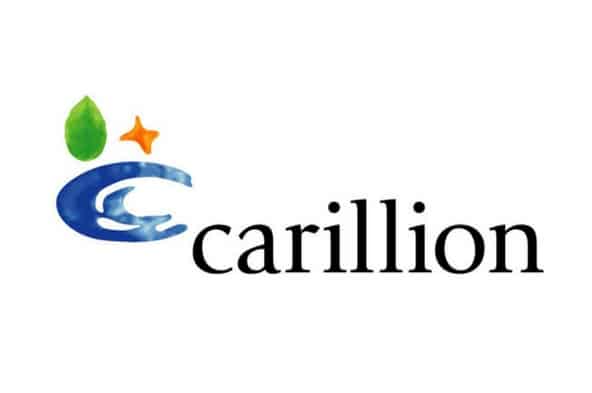What to Do if Your Company Has HMRC Arrears
Taxes and other debts owed to HM Revenue and Customs, or HMRC, are a common problem for businesses of all sizes. In fact, HMRC is the common creditor for businesses in the UK and, for company directors, a common source of stress.
Owing tax to HMRC can be a frustrating experience. Owing taxes to HMRC or not being able to pay your taxes in full can often signal to HMRC that your business may be insolvent, resulting in increased scrutiny on you as a company director.
Luckily, options are available to deal with tax arrears to HMRC. Depending on the status of your business and the size of the amount you owe to HMRC, you may be able to:
- Use financing to raise funds and pay your tax arrears
- Negotiate a Time to Pay arrangement (TTP)
- Propose a Company Voluntary Arrangement (CVA)
- Enter into administration
- Use pre-pack administration
Below, we’ve explained how each of these options works and provide more information to help you make an informed decision as a company director.
Can’t Pay HMRC: The Basics
HMRC is the most common business creditor in the UK. If you owe money to HMRC, you may face significant pressure to pay. Owing money to HMRC may also signal that your business is insolvent, which may lead to aggressive action from HMRC to recover tax debts.
Pressure from HMRC typically begins with threatening letters. If you don’t respond to the letters sent to your business, HMRC may continue by seeking a county court judgment (CCJ) against your business.
In some cases, HMRC may even seize assets owned by your business. As with other creditors, HMRC can seek a winding up order against your business in order to liquidate business assets and recover the amount owed.
- If you don’t pay PAYE, VAT or Corporation Tax in full and on time, your business may go into arrears with HMRC.
- As a company director, you face a risk of being held personally liable for taxes and/or National Insurance contributions owed to HMRC.
- If your business is insolvent due to HMRC tax arrears and you don’t cease trading, you could face allegations of wrongful trading if the business enters into liquidation.
- Acting quickly and seeking expert advice when you owe money to HMRC is the best way to protect your business and avoid aggressive legal action.
If your business owes money to HMRC and can’t afford to pay, it’s important to take swift action to protect your business. As insolvency practitioners, we can help you deal with tax arrears and pressure from HMRC — simply contact us for more information.
Your Options for Dealing With HMRC Tax Arrears
A variety of options are available for dealing with HMRC arrears. These range from borrowing money to pay your tax bill to negotiate a Time To Pay arrangement with HMRC, entering into administration, using pre-pack administration, proposing a CVA or closing your business.
Financing
If your business is viable — meaning it can sustain profits over the long term once its debts have been repaid — you may be able to borrow money to pay your HMRC arrears.
It’s unlikely that your business will qualify for an unsecured loan if it’s facing significant financial issues. However, if your business has significant assets, you may be able to borrow money via a secured loan.
If your business has consistent, steady cash flow from existing customers and clients, you may be able to use invoice discounting and/or factoring to generate cash flow and pay off its HMRC arrears.
Time to Pay Arrangement (TTP)
A Time to Pay arrangement (TTP) is an arrangement with HMRC that allows you to pay your business tax arrears over an extended period of time in individual installments, rather than as a lump sum.
Entering into a TTP is a good option if your business is viable and can pay its taxes, but simply can’t afford to pay its tax arrears all at once.
Not all businesses can successfully enter into a Time to Pay arrangement. In order to negotiate successfully with HMRC, you’ll need to be able to explain why your business hasn’t paid its tax bill on time and demonstrate that you’ll be able to pay over the long term.
Negotiating this type of agreement with HMRC can be stressful and challenging. If you have tax arrears and think a TTP arrangement may be suitable for you, it’s best to contact us and let our experienced team negotiate with HMRC on your behalf.
Company Voluntary Arrangement (CVA)
A company voluntary arrangement (CVA) is a legal agreement between your company and its creditors in which you negotiate new, consolidated and typically lower repayment installations for your debts.
CVAs are typically used for non-HMRC creditors, such as suppliers and lenders. However, it’s also possible to propose and agree to a CVA with HMRC. CVAs are often used by businesses that need to pay tax arrears and debts to other, third-party creditors.
Entering Into Administration
If HMRC is taking aggressive action against your company, entering into administration is a way to protect your business from legal action.
During the administration process, an insolvency practitioner will be appointed to manage your business and facilitate a turnaround. The administrator will act with the needs of your business and its creditors in mind and may, if appropriate, enter into a CVA.
Pre-pack Administration
Pre-pack administration allows you to sell your business’s assets at a fair value — often to a new company run by an existing director — before entering into administration.
This allows for continuation in your business relationships, helping to preserve asset value and jobs. Under the new company, you can continue business with existing customers and retain as much of the business’s value as possible.
Company Liquidation
If your business can’t afford to pay its debts to HMRC, is unable to access financing and can’t successfully negotiate a Time to Pay arrangement or CVA, company liquidation allows you to close the business and liquidate its assets to pay creditors.
You can enter your business into liquidation voluntarily through a process called a Creditors’ Voluntary Liquidation (CVL). During the liquidation process, you may be able to purchase the company’s assets at a fair market value and continue under a new entity.
If you don’t enter into liquidation voluntarily and take no action in response to demands from HMRC, your company may be liquidated through the court. This may expose you to charges and/or personal liability if you continue to trade while your business is insolvent.
What to Do if You Have HMRC Arrears
If you owe money to HMRC, it’s important to take action as soon as you can. HMRC can put extreme pressure on your business in order to recover tax arrears, including using the courts and sending Enforcement Agents to seize your business’s assets.
Acting quickly can not only protect your business — it can also protect you from trading while your business is insolvent.
As insolvency practitioners, we’ve helped hundreds of UK businesses in numerous industries negotiate with HMRC. If your business owes money to HMRC and is facing pressure, we can work on your behalf to negotiate a Time to Pay arrangement or other solution.
We can also provide expert advice on other options for your business, such as entering into administration or voluntary liquidation. For more information, please contact us on 0161 8719 842 or send us an email to arrange a free private cons



